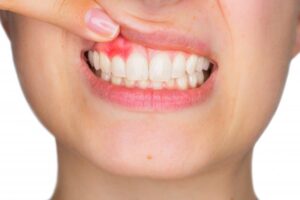
People in many countries do not have the same reliable access to dental education, supplies, and services as those in the developed world. Because of this, oral health conditions are some of the most prevalent ailments afflicting people across the world even though they can be largely prevented with proper oral care and reasonable safety measures. Even in more wealthy countries, people can still develop these major dental issues. Read on to learn about some of the most widespread oral health concerns and what you can do to prevent them.
Untreated Tooth Decay
Untreated tooth decay is the single most common health disorder in the world. Cavities are bacterial infections in the tooth’s enamel, and they do not get better on their own. Without professional help, these bacteria will bore deeper into the tooth until they can infect the pulp inside, causing a painful toothache. Tooth decay will eventually lead to tooth loss and infection of the neighboring teeth, and since the pulp contains blood vessels that can give these bacteria access to other tissues of the body, it can also cause potentially fatal secondary infections.
Gum Disease
The same bacteria that cause tooth decay can also harm the gums. As these germs accumulate, they form plaque at the gumline. As a metabolic byproduct, they produce acid that irritates the gums, resulting in inflammation called gingivitis. Marked by angry red, swollen, and bleeding gums, gingivitis will eventually progress into periodontal disease if left untreated. This will result in receding gums, tooth loss, bone loss in the jaw, and the same sort of secondary infections that can result from tooth decay.
Tooth Loss
An estimated one billion people are affected by tooth loss with 20% of them under twelve years old. It is also estimated that 7% of people 20 or older and 23% of seniors have suffered the complete loss of their teeth, also called edentulism.
The teeth play a huge part in a person’s ability to eat and personal appearance, so losing one can negatively affect their diet and psychological well-being. Teeth can be lost through diseases of the mouth as well as injury due to accidents, violence, improper use, and poor alignment. The loss of one tooth causes the jawbone to recede from the vacant socket, which can pull the neighboring teeth into poorer alignment. This can expose them to injury while making them harder to clean, which can lead to the loss of these teeth and a vicious cycle of tooth loss.
How Can These Conditions Be Prevented?
Good dental hygiene, regular dental appointments, and avoiding bad habits can prevent almost all cases of these oral health conditions. Proper dental hygiene is a daily regimen including brushing the teeth at least twice, flossing, and using mouthwash. Regular dental appointments can catch the beginnings of tooth decay and gum disease and treat them before they become a major problem.
You can also minimize your risk of developing these conditions by not smoking, avoiding excessive consumption of sugar and alcohol, and wearing a mouthguard when playing sports or riding a bike. These precautions together will provide you and your teeth with a multi-layered shield of protection that can keep your smile looking great for a lifetime.
About the Author
Dr. Anthony Giamberardino earned his Doctor of Dental Medicine from Tufts University School of Dental Medicine in 1985. He opened his private practice in Medford, MA, in 1993 to serve adult patients with high-quality dental care. Services include preventive, restorative, cosmetic, and emergency dentistry as well as dental implants. For more information about protecting your teeth from these all-too-common ailments, contact him online or dial his office at (781) 396-3800.
